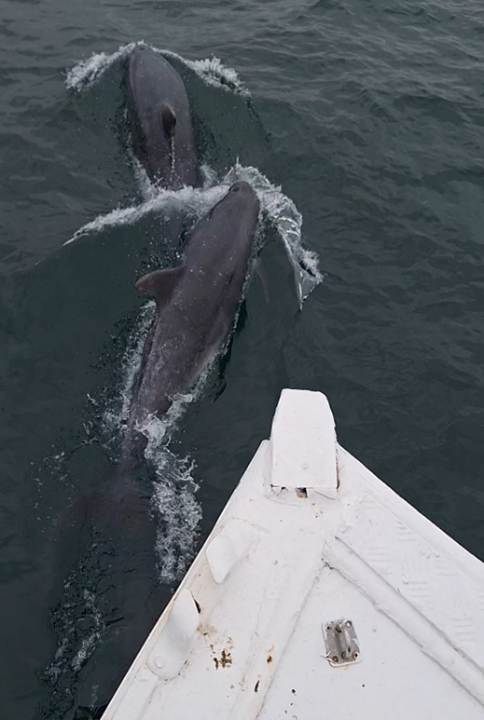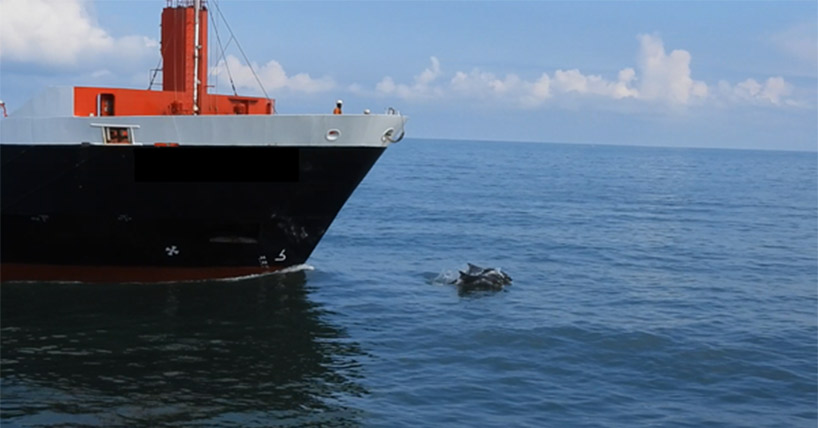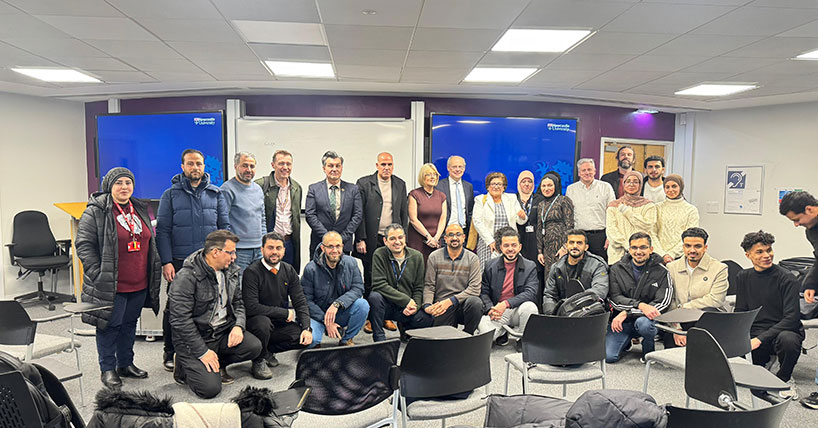All Cameras on Deck
Respectful marine users are rewarded with magical dolphin encounters
Published on: 29 April 2024
A citizen science project reveals that most boat users along the North-East coast do not disturb dolphins and are often rewarded with close-up encounters.
These findings were shared through the All Cameras on Deck citizen science project, led by the Marine MEGAfauna Lab at Newcastle University
Using citizen science data collected in the North-East, researchers are assessing whether marine vessels (ships and boats) result in behavioural disturbance of bottlenose dolphins. Preliminary findings suggest that the majority of vessel-dolphin interactions complied with the Marine and Coastal Wildlife Code.
Whales, dolphins and porpoises are protected in UK law, and it is a legal offence to disturb them. The Marine and Coastal Wildlife Code for whales, dolphins and porpoise is a set of guidelines outlined by the UK Government’s Department for Environment, Food and Rural Affairs (Defra) and the Whale and Dolphin Conservation (WDC) that provides advice on minimising disturbance to whales, dolphins, and porpoise. It includes:
- Being aware of disturbance indicators such as flipper and tail slaps, longer dives, grouping together and unpredictable movements.
- When operating a vessel, do not make sudden changes in direction and speed, do not approach the animals directly, do not pursue or chase them, and do not crowd them with multiple vessels.
- Never swim with, touch, or feed the animals.
Further, the research also shows that when vessels complied with the Marine and Coastal Wildlife Code, such as reducing speed and allowing dolphins to approach the vessel (rather than the vessel approaching the dolphins), they were rewarded with bow-riding encounters - where dolphins surf on the pressure wave created at the front of the boat.

All Cameras on Deck
All Cameras on Deck is a citizen science project which was established in 2023 by researchers at Newcastle University with the support of the Newbiggin Dolphin Watch Association (NDWA), following concern from residents that dolphins were being disturbed by marine users in the region.
Ivor Clark, Chair of NDWA said: “In the last few years about 100 coastal bottlenose dolphins have become semi-resident off the North-East’s coastline during the summer period. They can accumulate in river mouths and in bays. Their proximity to the shore increases the likelihood of dolphin-human interactions.
NDWA has received increasing reports of dolphins being chased or harassed by seagoing vessels, in breach of the Code and the Law. The vessels can include boats, yachts, jet skis, powered surfboards, paddleboards and kayaks. The Code is there to help protect the animals. We need to ensure all vessel users are aware of, and abide by, the Code.”
Boats disturbing dolphins is unfortunately common in other areas around the world, and it can have devastating impact on dolphin population health and survival. When disturbed by vessels, dolphins react by fleeing, and spending less time on important behaviours such as resting, socialising, and feeding. This has been demonstrated in several areas where dolphin tourism is practised, demonstrating the need for enforced regulations to prevent negative impact. Unregulated tourist vessels often elicit the strongest responses.
All Cameras on Deck invites members of the public to submit videos they have recorded of cetaceans (whales, dolphins, and porpoises) along the North-East coast (Berwick upon Tweed to Scarborough). The project has so far received over 300 video submission and has engaged a wide variety of people from dedicated wildlife watchers to local boat operators.
Following a successful first phase, the project is now relaunched with refined submission guidelines including requests for longer videos. People are encouraged to get involved submitting any videos they capture of whales, dolphins, or porpoises with or without vessels present in the North-East.
Sarah Dickson, PhD researcher at Newcastle University’s School of Natural and Environmental Sciences, said: “The videos submitted so far have provided a good insight into dolphin behaviour, and it would be great to receive some longer videos that would allow us to investigate the drivers of behavioural change further.
The project highlights the importance of respectful wildlife watching and the benefits this provide for both the animals and the watchers. As local interest in the dolphins increases it is important that we continue to monitor the animals and any disturbance they may face.”
For more information and to get involved in this citizen science project, please visit: Please visit https://allcamerasondeck.wordpress.com/




